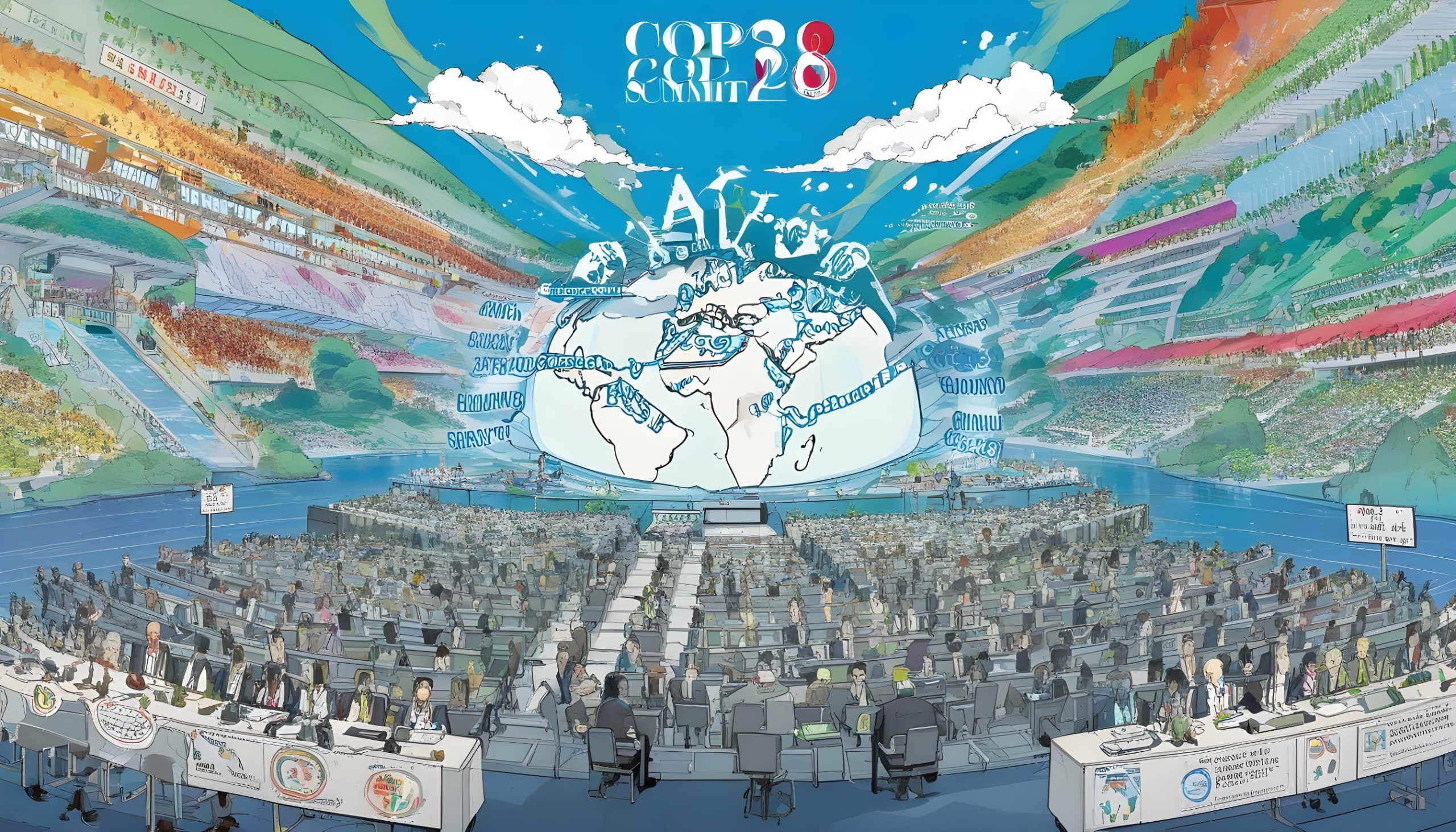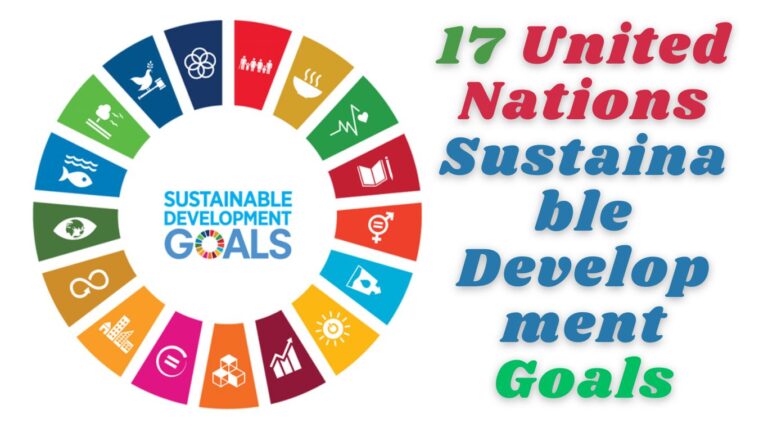Overview of COP 28
COP 28, the 28th session of the Conference of the Parties to the United Nations Framework Convention on Climate Change (UNFCCC), was held in Dubai from November 30th to December 12th, 2023. The event was momentous, marked by notable accomplishments alongside persistent challenges in the ongoing battle against climate change.
A groundbreaking development at COP 28 was the inaugural Fossil Fuel Transition Agreement, signifying a pivotal shift in global climate policy. This accord advocates for a swift and equitable move away from all fossil fuels, establishing ambitious targets for renewable energy deployment and energy efficiency.
The conference outlined essential actions for the future. The Global Stocktake, an evaluation of worldwide climate efforts, underscored the pressing need for more ambitious emissions reductions. It presented a roadmap for nations to enhance their climate objectives in the forthcoming years. Additionally, a historic decision resulted in the creation of a new fund aimed at supporting vulnerable countries grappling with the impacts of climate change, addressing critical concerns related to climate justice.
COP 28 also established a bold objective of tripling global renewable energy capacity by 2030, a pivotal stride toward achieving net-zero emissions by the mid-century mark. The summit further doubled the global target for improvements in energy efficiency by 2030, a crucial measure in curtailing greenhouse gas emissions.
Despite these advancements, COP 28 revealed that current climate commitments fall short of the necessary measures to limit global warming to 1.5 degrees Celsius above pre-industrial levels. This “ambition gap” remains a substantial challenge. Notably, the influence of the fossil fuel industry persisted at COP 28, impeding progress on certain critical issues. Concerns were voiced by developing countries, emphasizing that the agreement inadequately addresses the needs of vulnerable communities facing the severe impacts of climate change.
Highlighted Challenges of COP 28 by Scholars

While COP 28 celebrated significant achievements, scholars warn of persisting challenges. One major concern surrounds the ambition gap: current climate pledges remain insufficient to limit global warming to 1.5 degrees Celsius, as outlined in the Paris Agreement. Some scholars emphasize the urgency of this issue, pointing to the Global Stocktake’s stark assessment and calling for bolder emissions reductions from all nations.
Another challenge highlighted by scholars is the influence of the fossil fuel industry. Some argue that continued lobbying and presence at COP weaken progress on crucial initiatives like phasing out fossil fuels. This raises concerns about potential conflicts of interest and the need for stronger measures to limit industry influence.
Additionally, scholars point to the lack of concrete implementation plans. Although COP 28 established ambitious goals, translating them into tangible action remains a hurdle. Scholars urge clear roadmaps and accountability mechanisms to ensure countries follow through on their commitments.
Finally, concerns about equity and climate justice persist. Vulnerable nations, despite contributing minimally to the problem, face the brunt of climate impacts. While the establishment of the Loss and Damage Fund is a positive step, some scholars argue it falls short of the actual need and highlight the importance of continued financial and technological support for developing countries.
Despite progress at COP 28, scholars warn of enduring challenges. Addressing the ambition gap, tackling fossil fuel influence, ensuring concrete implementation, and promoting climate justice are crucial next steps to secure a truly successful outcome for the global fight against climate change.
Damian Carrington describes in his articles discussed the adversary aspects of the summit. He said that the deadly irony was not lost on delegates that the biggest risk to prosperity – and the most feared tipping points – came directly from the climate emergency driven by Opec’s products. Spain’s ecology minister called the letters “disgusting”, while delegates from vulnerable countries warned that a weak deal would be a death warrant.
Cop28 was hosted by a petrostate, the United Arab Emirates, and run by the boss of its state oil company, Adnoc. Sultan Al Jaber delivered a historic first mention of a fossil fuel transition. But his pitch was that, as an oil baron, he could drag the industry onto the path to climate salvation. He could not, and now returns to Adnoc, which has the biggest net-zero-busting plans of any company on Earth.
COP 28 also set an audacious goal of tripling global renewable energy capacity by 2030, a pivotal step toward achieving net-zero emissions by the mid-century mark. The summit additionally doubled the global target for improvements in energy efficiency by 2030, a crucial measure in mitigating greenhouse gas emissions.
Despite these strides, COP 28 highlighted that current climate commitments fall short of the necessary measures to restrict global warming to 1.5 degrees Celsius above pre-industrial levels. This “ambition gap” remains a substantial challenge. Significantly, the influence of the fossil fuel industry persisted at COP 28, hindering progress on certain critical issues. Developing countries voiced concerns, emphasizing that the agreement inadequately addresses the needs of vulnerable communities facing the severe impacts of climate change.
International Institute for Sustainable Development has published an article in which Mr. Nathalie Bernasconi, an Interim Co-President and Co-CEO and Vice-President, Global Strategies and Managing Director, Europe at IISD has nicely summarized the Dubai COP 28 conference:
“COP 28 outcomes represent significant wins overshadowed by disappointments. While we celebrate the historic deal on financing for loss & damage and the commitment to transition away from fossil fuels—adopted for the first time—we can’t ignore the heartbreaking letdowns on adaptation and the dangerous loopholes in mitigation. The decisions adopted today in Dubai will impact the most vulnerable communities on earth, leaving them underprepared, underfinanced, and exposed to the consequences of global warming breaching the 1.5°C threshold.”
Greg Muttitt, Senior Associate, in IISD shared his views, “COP 28 has brought the central cause of climate change to the fore, and, for the first time, an equitable transition away from fossil fuels is an agreed, negotiated outcome. It is disappointing that the COP 28 formal decision falls short of an explicit call for a full phase out of fossil fuels, as the science demonstrates is crucial to achieving the Paris Agreement goals. Equally, the text still includes loopholes countries might use to avoid or delay action to phase out fossil fuel subsidies, such as the qualifier ‘inefficient’ and the vague ‘as soon as possible’ timeline. Nonetheless, phasing out of fossil fuels now has unstoppable momentum. The recognition of equity requires developed countries both to reduce production and consumption fastest, and to provide substantial support to enable poorer countries differentiated just transitions. And as governments return home, we urge them to implement the phaseout they discussed in Dubai, including by stopping any new fossil fuel projects and public finance for them.”
Another scholar, Anne Hammill, Associate Vice President, Resilience, IISD described the meeting in these words:
“The newly adopted COP 28 decision on the Global Stocktake is unacceptably weak and does not reflect the urgent need of ramping up adaptation actions and support. All countries need to do more to enhance adaptive capacity, strengthen resilience and reduce vulnerabilities.”
“For many countries, adaptation is a matter of survival. COP 28 failed to send a strong political signal on the need to ramp up both adaptation action and support. Progress on adaptation is crucial in this critical decade to fill the ambition and implementation gap.”
Ib Khalil, a CEO at Hujratalks shared his concerns about COP 28 Dubai Conference:
“The assembly was led by individuals responsible for supplying a significant portion of the world’s food. The CEO of Adnoc and other influential figures, including Sheikhs, have been implicated in environmental degradation. They’ve converted vast desert areas into concrete landscapes, causing the extinction of numerous species. Humanity must take decisive and rational actions to preserve our planet; otherwise, we’ll confront the consequences more tangibly and severely.”
In conclusion, the UN Climate Change conferences, also known as COPs, convene annually and stand as the singular global platform for making collective decisions on climate change. With nearly universal participation from every country, COPs serve as the forum where the international community collaborates to address the climate crisis. Objectives include restraining global temperature increases to 1.5 degrees Celsius, aiding vulnerable communities in adapting to climate change impacts, and striving for net-zero emissions by 2050.
Sources:
The Guardian: https://www.theguardian.com/environment/2023/dec/14/cop28-fossil-fuels-deadly-expansion-plans-what-now
IISD: https://www.iisd.org/articles/news/most-significant-decisions-paris-agreement-iisds-experts-cop-28-outcome







